Hyundai IONIQ 6 vs Porsche Taycan – Which car suits you better?
Everyday use, family trips or long-distance drives – here’s where the differences show.
Discover whether Hyundai IONIQ 6 or Porsche Taycan fits your lifestyle better.
Costs and Efficiency: When it comes to price and running costs, the biggest differences usually appear. This is often where you see which car fits your budget better in the long run.
Hyundai IONIQ 6 has a significantly advantage in terms of price – it starts at 37600 £, while the Porsche Taycan costs 87900 £. That’s a price difference of around 50314 £.
In terms of energy consumption, the advantage goes to the Hyundai IONIQ 6: with 13.90 kWh per 100 km, it’s noticeable more efficient than the Porsche Taycan with 16.70 kWh. That’s a difference of about 2.80 kWh.
As for range, the Porsche Taycan performs barely noticeable better – achieving up to 680 km, about 66 km more than the Hyundai IONIQ 6.
Engine and Performance: Power, torque and acceleration are the classic benchmarks for car enthusiasts – and here, some clear differences start to show.
When it comes to engine power, the Porsche Taycan has a clearly perceptible edge – offering 1034 HP compared to 650 HP. That’s roughly 384 HP more horsepower.
In acceleration from 0 to 100 km/h, the Porsche Taycan is decisively quicker – completing the sprint in 2.20 s, while the Hyundai IONIQ 6 takes 3.20 s. That’s about 1 s faster.
In terms of top speed, the Porsche Taycan performs a bit better – reaching 305 km/h, while the Hyundai IONIQ 6 tops out at 257 km/h. The difference is around 48 km/h.
There’s also a difference in torque: Porsche Taycan pulls convincingly stronger with 1340 Nm compared to 770 Nm. That’s about 570 Nm difference.
Space and Everyday Use: Beyond pure performance, interior space and usability matter most in daily life. This is where you see which car is more practical and versatile.
Seats: Hyundai IONIQ 6 offers slightly more seating capacity – 5 vs 4.
In curb weight, Hyundai IONIQ 6 is to a small extent lighter – 1850 kg compared to 2165 kg. The difference is around 315 kg.
In terms of boot space, the Porsche Taycan offers barely noticeable more room – 407 L compared to 401 L. That’s a difference of about 6 L.
When it comes to payload, Porsche Taycan noticeable takes the win – 635 kg compared to 430 kg. That’s a difference of about 205 kg.
Who wins the race?
The Porsche Taycan proves to be offers a more balanced package and therefore becomes our DriveDuel Champion!
Porsche Taycan is the better all-rounder in this comparison.
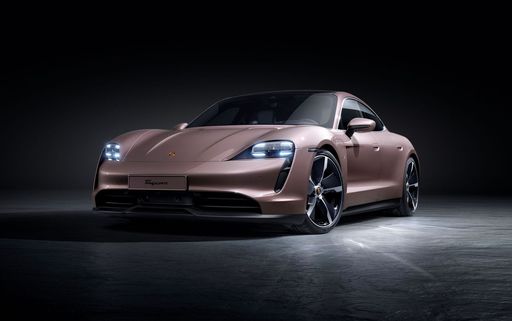
Porsche Taycan
Hyundai IONIQ 6
The Hyundai IONIQ 6 merges futuristic design with eco-friendly technology, offering a glimpse into the future of electric mobility. Its sleek silhouette and aerodynamic profile are sure to capture attention on the road, while the interior provides a seamless blend of comfort and cutting-edge digital features. With a focus on efficiency and sustainability, this model represents a significant step forward in the evolution of electric vehicles.
details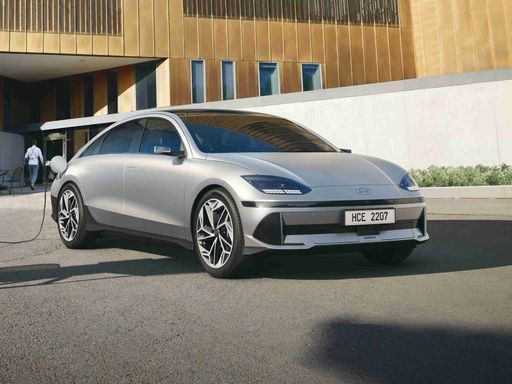 @ hyundai.news
@ hyundai.news
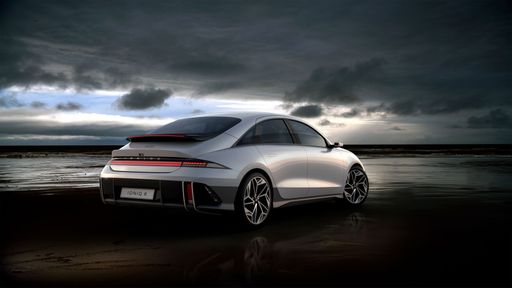 @ hyundai.news
@ hyundai.news
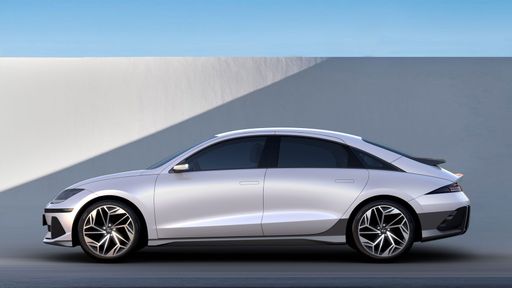 @ hyundai.news
@ hyundai.news
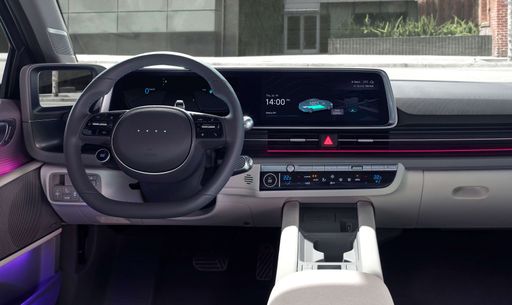 @ hyundai.news
@ hyundai.news
Porsche Taycan
The Porsche Taycan redefines the electric vehicle landscape with its stunning design and thrilling performance. With its smooth lines and athletic stance, this four-door sports car captures attention while delivering an exhilarating driving experience. Inside, the Taycan boasts a luxurious and high-tech interior, seamlessly blending comfort and cutting-edge innovation.
details @ Porsche
@ Porsche
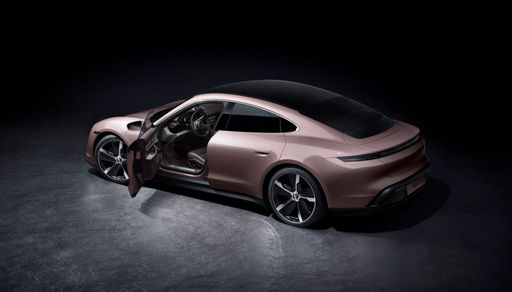 @ Porsche
@ Porsche
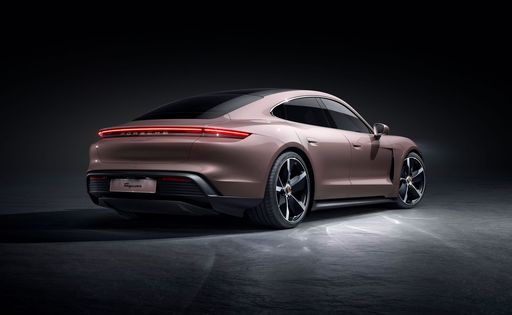 @ Porsche
@ Porsche
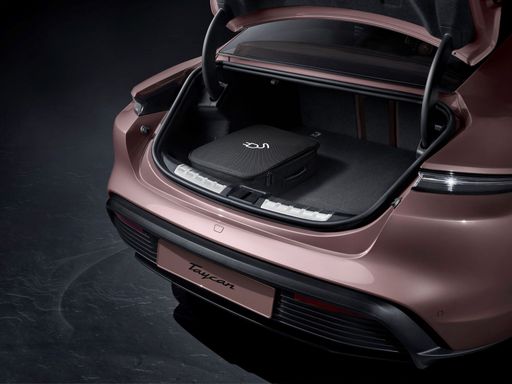 @ Porsche
@ Porsche
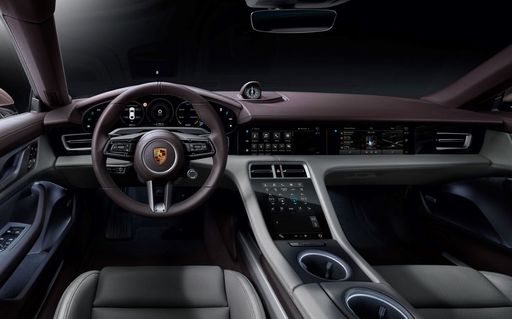 @ Porsche
@ Porsche

|

|
|
|
|
Costs and Consumption |
|
|---|---|
|
Price
37600 - 64300 £
|
Price
87900 - 206700 £
|
|
Consumption L/100km
-
|
Consumption L/100km
-
|
|
Consumption kWh/100km
13.9 - 15.1 kWh
|
Consumption kWh/100km
16.7 - 20.7 kWh
|
|
Electric Range
429 - 614 km
|
Electric Range
552 - 680 km
|
|
Battery Capacity
53 - 84 kWh
|
Battery Capacity
82.3 - 97 kWh
|
|
co2
0 g/km
|
co2
0 g/km
|
|
Fuel tank capacity
-
|
Fuel tank capacity
-
|
Dimensions and Body |
|
|---|---|
|
Body Type
Hatchback
|
Body Type
Coupe
|
|
Seats
5
|
Seats
4
|
|
Doors
4
|
Doors
4
|
|
Curb weight
1850 - 2095 kg
|
Curb weight
2165 - 2370 kg
|
|
Trunk capacity
401 L
|
Trunk capacity
326 - 407 L
|
|
Length
4855 - 4935 mm
|
Length
4962 - 4968 mm
|
|
Width
1880 - 1940 mm
|
Width
1966 - 1998 mm
|
|
Height
1495 mm
|
Height
1378 - 1381 mm
|
|
Max trunk capacity
-
|
Max trunk capacity
-
|
|
Payload
425 - 430 kg
|
Payload
175 - 635 kg
|
Engine and Performance |
|
|---|---|
|
Engine Type
Electric
|
Engine Type
Electric
|
|
Transmission
Automatic
|
Transmission
Automatic
|
|
Transmission Detail
Reduction Gearbox
|
Transmission Detail
Reduction Gearbox
|
|
Drive Type
Rear-Wheel Drive, All-Wheel Drive
|
Drive Type
Rear-Wheel Drive, All-Wheel Drive
|
|
Power HP
151 - 650 HP
|
Power HP
408 - 1034 HP
|
|
Acceleration 0-100km/h
3.2 - 8.8 s
|
Acceleration 0-100km/h
2.2 - 4.8 s
|
|
Max Speed
185 - 257 km/h
|
Max Speed
230 - 305 km/h
|
|
Torque
350 - 770 Nm
|
Torque
410 - 1340 Nm
|
|
Number of Cylinders
-
|
Number of Cylinders
-
|
|
Power kW
111 - 478 kW
|
Power kW
300 - 760 kW
|
|
Engine capacity
-
|
Engine capacity
-
|
General |
|
|---|---|
|
Model Year
2022 - 2025
|
Model Year
2024 - 2025
|
|
CO2 Efficiency Class
A
|
CO2 Efficiency Class
A
|
|
Brand
Hyundai
|
Brand
Porsche
|
What drive types are available for the Hyundai IONIQ 6?
Available configurations include Rear-Wheel Drive or All-Wheel Drive.
The prices and data displayed are estimates based on German list prices and may vary by country. This information is not legally binding.
